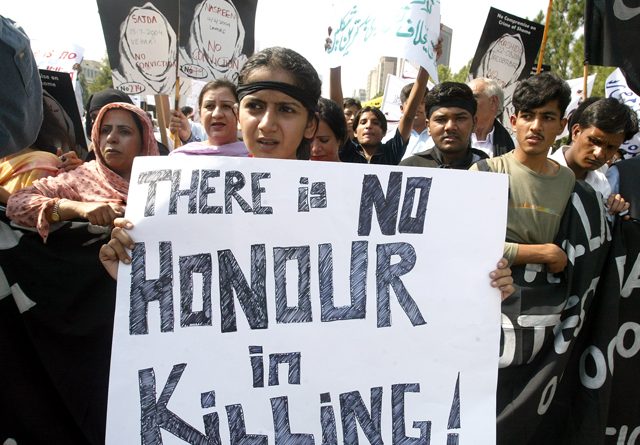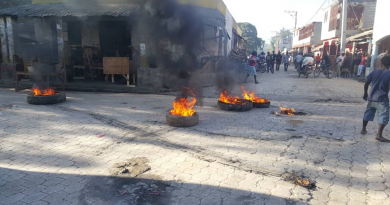Focus on Honor Killings: Pakistan
Alyssa Tolentino
Staff Writer
In Pakistan, where religion is inextricably tied to culture and tradition, “honor” killings carried out in the name of a family’s reputation have become normalized and are on the rise.
According to a Pakistani rights group, honor killings claim the lives of more than 1,000 Pakistanis every year, reports the Washington Post. The reason is rooted in some Islamic fundamentalists’ belief that only through the murder of an offending family member can honor be restored to the rest of the family. Although killers routinely invoke Islam, they rarely cite anything other than the belief that Islam doesn’t allow for the mixing of sexes.
In a patriarchal culture like Pakistan’s, domestic violence is rampant. According to the Human Rights Watch, it is not unusual for men to murder female relatives to punish behavior they deem unacceptable. Violence against a woman can be due to the fact that she fell in love with a man not of her family’s choosing, refused to agree to an arranged marriage or filed for divorce against her abusive husband.
In February 2016, Pakistan’s largest province, Punjab, passed a landmark law criminalizing all forms of violence against women, reports BBC. More than thirty religious groups threatened to launch protests if the law was not repealed, reports BBC.
These groups claimed that the new law will increase the divorce rate and destroy the country’s traditional family system. Months later, in October, parliament passed an anti-honor killing law that included harsher punishments and partially closed a loophole allowing legal heirs to pardon perpetrators who are usually also a relative. Nevertheless, the number of cases of honor killings continue to increase.
Human Rights Watch suggests that authorities ensure that police impartially investigate honor killings without bowing to political or religious pressures. In addition, they argue that the government should consult women’s rights groups on safety assessments the police should conduct before releasing girls into the custody of their relatives.
Women and girls should also have access to safe emergency shelters and other means for protection when they report risks from their family. Above all, argues Human Rights Watch, is that the mindset of a parent who could kill a daughter, or the boy who could kill his sister, must be changed.
CBS reports the story of eighteen year old Tasleem Rajhu, a daughter in a Muslim family, who was seen in public with a Christian. Even though the man had converted to Islam, their relationship was forbidden. Co-workers would tell her brother, “Can’t you do anything? What is the matter with you? You are not a man. It would be better to kill your sister. It is better than letting her have this relationship.”
Seven days after finding out that Tasleem defied the family and married the formerly Christian boy, Mubeen Rajhu shot and killed his sister.
Their father said, “My family is destroyed. Everything is destroyed only because of this shameful girl. Even after death I am destroyed because of her.” He is angry for two reasons only: now that Mubeen is in jail, he is no longer earning nearly $200 a month, and his daugther’s death will now reveal her “shame” to other members of the family and beyond.
A neighbor said, “I am proud of this man that he has done the right thing, to kill her. We cannot allow anyone to marry outside our religion.” He believes that Mubeen did the right thing in taking his sister’s life.
A woman who lived down the street said, “Why did she have to die? My husband is having an affair and he left me with four kids to support and no one is killing him. Why?”




